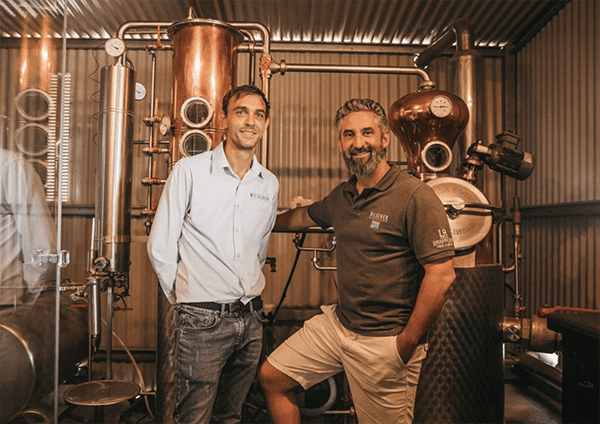By Diane Silcock
JUNIPER berries, traditionally harvested wild, have been used in gin-making since ancient times. A South African importer of these berries, SGC Botanicals, imports around 45 tons of juniper berries annually, sourced from Serbia and South Asia where they are picked wild.
The company supplies this key ingredient to 62 distilleries and 100 home distilleries across South Africa. This ‘seems’ a good indication of a thriving craft gin industry.
Rise and decline of the craft gin market
Nils Schwarz, owner of SGC Botanicals, shares with Cape Business News an update on the industry. “There was a massive escalation during and after COVID, as gin was a drink which people could make themselves fairly easily. This led to a rapid increase in the number of distilleries. Since then, the demand has dropped off and then stabilised. There is a glut of gins on the South African market, and the consumer is becoming more selective.”
With so much competition, he says, a lot of the smaller players have stopped producing. The larger, more established ones remain along with the smaller craft distilleries that produce quality products.
Lessons from Wilderer Distilleries
One such craft distillery is Wilderer Distilleries, South Africa’s first private distillery which has been in business for 30 years. Christian Wilderer and his father Helmut started the business in 1995 having moved out from Germany. His father started distilling Grappa – which remains part of their portfolio and which has won international awards.
However, it was in 2014 when Christian was in Germany that the gin trend surfaced, spilling over from England. Christian predicted it would come to South Africa too and suggested to his father that they develop a gin. Helmut was not keen as he disliked gin. A handful of distilleries launched craft gins and enjoyed massive media attention.
This helped convince Helmut and he set about learning as much as he could about gin making. It took a year and half to develop and in December 2015 they launched the first gin to great success. In the first four months, they won multiple international gold awards and received much publicity. Within the first year they went from producing 10 000 bottles of Grappa a year, to producing 32 000 bottles of gin. The next year they achieved 60 000, which was an enormous amount for their small setup. They went on to export it to 20 countries.
Christian says that the big spirits companies were initially slow on the uptake but when they caught onto the gravy train, they reinvented their brands, rebranded and even changed recipes. They acquired some of the new craft distilleries adding their brands to their portfolios and then cross-subsidising in order to gain market share.
This led to a massive drop off in sales for craft distilleries as well as the market became flooded with which meant less money to go around.
Key opportunities and insights for the alcohol industry
What will the next boom be? The ready-to-drink market is on the rise and even Heineken N.V. reported in their 2024 third-quarter trading update, that in South Africa their cider Savanna and ready-to-drink Bernini grew double-digits, outperforming the market.
Wilderer Distilleries, although severely affected by the decline of the craft gin industry, has adapted by contract distilling for other brands, as well as white labelling for corporates and hotel groups, plus continuing with some exports. They also have plans afoot for a ready-to-drink product.
